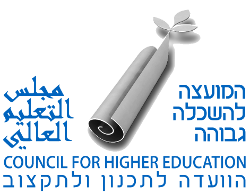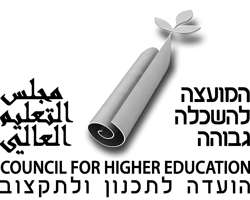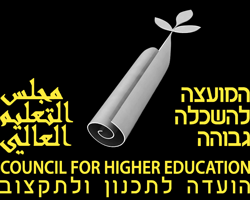Research and Scientific Cooperation with the EU as Part of “Horizon 2020” Program Saw Grants of over €1.3 Billion Awarded to 1666 Israeli Projects throughout the duration of the Program
Certificates of appreciation will be awarded to 556 Israeli companies and researchers who were awarded "Horizon 2020” grants between 2019 and 2020
May 11, 2022, Jerusalem - The award ceremony, conducted by the EU Delegation to Israel and ISERD, the Israeli Directorate for European R&D, part of the Innovation Authority, was held today, Wednesday, 11.5.2022 at the Peres Center for Peace and Innovation. The success of Israeli industry and academia in research and innovation collaboration programs with Europe was celebrated at the ceremony, during which tokens of appreciation were awarded to Israeli researchers and companies who were recipients of "Horizon 2020" grants during the final years of the program, 2019 and 2020. Israel's participation in the next cycle of the Horizon Europe program was also noted.
The EU Delegation to Israel, the Directorate of ISERD and its steering committee that includes the Planning and Budgeting Committee of the Council for Higher Education, the Ministry of Innovation, Science and Technology, the Israel Innovation Authority, Ministry of Finance and Ministry of Foreign Affairs note their appreciation of the award winners, with the event held to mark the important cooperation with Europe. This cooperation is integral for Israel’s establishment as a leading player in the fields of industrial and academic research, development and innovation.
Within the context of the program, between 2014 and 2020, 2045 researchers, companies and other entities were awarded 1666 grants amounting to approximately 1.3 billion Euros. A further 550 million Euros was invested in Israeli companies and venture capital through various financial tools provided to Israel through the European Investment Bank.
862 companies were awarded grants amounting to 430 million Euros, of them 539 small and medium-sized companies which received grants totaling 272 million Euros. 961 researchers were also awarded grants amounting to 800 million Euros.
The multidisciplinary Horizon 2020 program has supported projects in various diverse fields. The most popular included about 780 million Euros in natural sciences, 360 million Euros in health and life sciences, 56 million Euros in agriculture, 61 million Euros in the humanities and 397 million Euros in engineering.
One main area in which Israel excels is the prestigious European Research Council grants for breakthrough research. As part of it, grants totaling 661 million Euros were awarded to 472 researchers. 309 companies were awarded the EIC grant for Outstanding Companies amounting to 180 million Euros, and 903 researchers and companies were awarded in consortium, projects with a combined sum of 427 million Dollars.
In 2021, Israel joined the continued Horizon Europe R&D program as an associated state. The new program is more ambitious with a larger budget of 95.5 billion Euros for a duration of 7 years. Israel has been a partner in the European programs as an ancillary state since 1996 and accordingly, every Israeli legal entity is entitled to compete for research and innovation grants as part of these programs. Israeli funding for participation in the program is provided by the Council for Higher Education, the Innovation Authority and the Ministry of Innovation, Science and Technology.
Over the years, this partnership has strengthened Israeli academic and industrial excellence, led to investments in research infrastructure and enabled long-term and innovative research. The program has enabled Israeli companies to access European partners in order to jointly address environmental and social challenges, and has promoted collaboration with researchers and industry at the forefront of European research. The European Framework Program also allows Israel to integrate into a very broad network of European research infrastructures, as well as to take part in the program's flagship projects such as the emerging program in the field of quantum technologies, graphene and brain research.
Orit Farkash Hacohen, Minister of Innovation, Science and Technology: “It was a great privilege to present awards to 556 innovative researchers from all disciplines that represent the cream of the Israeli and global scientific community. Israel's participation in Horizon, the largest and most prestigious research and development program worldwide, is a further example of the reputation that Israeli innovation has across the globe, and to Israel’s contribution to global science in multiple areas. Throughout the previous Horizon program, thousands of Israeli researchers were awarded grants that added up to approximately 1.3 billion Euros. These worlds connect the State of Israel with the rest of the world and strengthen our foreign relations. This program enables our researchers to continue and advance groundbreaking research, using globally leading platforms."
Dr. Ami Appelbaum, Chief Scientist at the Ministry of the Economy, Chairman of the Innovation Authority and Chairman of ISERD's Steering Committee, noted that: "Horizon Europe is the seventh European program in which Israel is taking part, and it is the most significant one of all previous programs. The European Framework Program is a prestigious program that enables Israeli industry and academia to compete on the world stage of excellence and innovation enabling swifter access to the European market. This is a very competitive program, and winning it is a mark of quality and excellence for the researchers and companies that obtained its grants and a testament to the disruptive research that is conducted in Israel. The program enables individual participation as well as collaborations with European partners within the framework of consortiums. The programs added value transcends its significant funding and provides opportunities for collaborations in research and development and thereafter business development with European entities. Israel's investment in the current framework program, which started in 2021, amounts to about 2.3 billion Euro over the next seven years, and presents the largest Israeli investment in research and development since its first participated in these programs. This presents a vote of confidence on behalf of the Israeli government in the exceptional research and development capabilities of the Israeli academia and industry as well as in the strategic importance of this European program. However, this program presents a significant challenge for Israeli academia and industry in expending collaborations with European countries and extracting the full potential of this program. "
Prof. Yossi Makori, Chairman of The Planning and Budgeting Committee of the Israeli Council for Higher Education, noted: “The European framework programs are of paramount strategic importance in promoting Israeli research, its connection to the European community and its standing at the forefront of science. We are especially proud of the achievements of Israeli researchers in the program, and especially in the prestigious ERC programs. These achievements are a testament to Israeli academic research excellence, and we will continue to work to strengthen and promote it in the new European Framework Programs as well as in additional programs."
Dimiter Tzantchev, EU Ambassador to Israel: "We value our partnership a great deal. A partnership that has been thriving despite the hurdles thrown up by COVID-19. Indeed, Israeli researchers supported by the EU including nine Israeli research groups that have won €4.5 million from the European Union’s Horizon 2020 program and took part in collaborative projects in response to the coronavirus outbreak, with each project involving at least three partners from three different countries.
The exposure for both EU and Israeli academia and industry to cutting edge research and the links to leading institutions as well as to key actors in the private sector have been invaluable contributions to both Israel and the EU's research worlds, societies and economies.
Besides leading to tremendous breakthroughs in many fields, Horizon 2020 engagement and synergies have contributed to expand further EU-Israel relations, reinforcing existing bilateral political and trade agreements. Leveraging on these very inspiring achievements, I wish our partnership to grow stronger and bigger, to nurture the best R&I talents for the benefit of our people, planet, security and prosperity, in the upcoming seven years.”
Nili Shalev, Director of ISERD, added that: "The European Framework Program provides researchers and companies with many benefits aside from generous funding grants. It upgrades the quality of research, enables the recruitment of quality personnel, facilitates investment in advanced equipment and works to establish international standards. The grant allows companies to shorten their time to market and enables multiple interactions with potential customers. The program places its participants at the forefront of global research on topics of environmental and social importance. The program has an extensive cushion of opportunities and benefits and we call on anyone interested to contact ISERD which seeks to serve as a gateway for all to the program".
Yael Ravia Zadok, VP Finance, Israeli Ministry of Foreign Affairs: "The successful completion of Israel's participation in Horizon 2020 Framework Program and joining the 2021-2027 Horizon Europe program, presents a significant national and professional roadblock, most notably the participation in the advanced quantum programs. This presents a significant statement to the science and innovation community in Israel aligning it, similarly to Horizon 2020, with leading research and industry institutes in Europe. It represents Europe's vote of confidence in Israeli science, technology and innovation and expands possibilities for financial and research collaborations between Israel and the European Union's countries.
Israel is facing complex political and economic challenges and the Ministry of Foreign Affairs, including its various representatives worldwide and partners in the Israeli ecosystem, will continue to lead Israel to new records of progress and innovation in dealing with those challenges."
Examples of projects and studies that have received funding -
Mekorot - H2020 SMART-Plant Innovation Action: Investigating technologies for the transformation of wastewater treatment plants into a resource recovery facility that can produce energy, nutrients, cellulose, biopolymers, optimize operating costs and improve energy efficiency and carbon neutrality.
LIVEU - Multilink Gateway in 5G networks: Using multiple access networks simultaneously and improving the reliability of the broadcast, in particular supporting smooth transitions from single-point transmission areas to multi-transmission areas.
Arava R&D Center - Modular technology for wastewater treatment, a smart combination of the various innovations around the treatment of bacterial algae is of crucial importance for bettering performance and saving resources. The technology “Saltgae” has been enlarged and integrated into three demonstration sites in different locations, in Israel (Arava), Italy (Camproso) and Slovenia (Ljubljana). They present a variety of climatic conditions and different sources of wastewater for treatment: water from the dairy industry, water from a leather tanning warehouse as representatives of how to deal with tanning effluents, as well as water from fish farming to spirulina biomass farming. The processes at each of these demo sites are highly diverse, making it possible to prove the feasibility of implementing the modular technology, Saltgae, under different scenarios.
BREVEL - Developing disruptive technology for micro-algae growth which is revolutionizing the micro-algae industry and enabling its high quality production on a large industrial scale. It does so at a significantly lower costs than currently exists. Brevel aims to become a global leader in the micro-algae industry and help solve the challenge of global food and nutrition with nutritious and affordable micro-algae for everyone. Brevel plans to assemble its first pilot plant and enter into the commercial production phase of micro-algae. The first use case that Brevel strives to begin working on is the market for supplements for salmon farming, seeking to replace synthetic components that are currently used and prohibited for human consumption with components that consist of high quality natural algae.
Prof. Elette Boyle, Efi Arazi School of Computer Science, Reichman University- ERC Starting 2019 – HSS-Classical approaches in designing a secure computing protocol requiring excessive communication between parties, while approaches based on full homomorphic encryption (FHE) require heavy computation and significant concrete communication costs. Prof. Boyle is developing the capabilities to secure computing design using a new methodology of homomorphic secret sharing (HSS), where homomorphic encryption may be distributed among non-interacting factors. The project aims to lead to simpler and more efficient solutions for secure computing with similar benefits to FHE (fully homomorphic encryption), with implications that will go far beyond the field of secure computing.
Dr. Benjamin Palmer, Department of Chemistry, Ben Gurion University of the Negev - ERC Starting 2019 – CRYSTALEYES - Organic molecular crystals have, in recent years, become the subject of intensive theoretical and experimental research with the aim of harnessing their unique optical, electronic and mechanical properties for technological applications. Many organisms control the formation of crystals to manipulate light in revolutionary ways. Dr. Palmer monitors the process of biological crystallization in a model system, using advanced techniques to identify the molecules that control the crystallization and the genes that encode them.
Prof. Bina Kalisky, Department of Physics, Bar Ilan University - ERC Consolidator 2019 – SEE_QPT - Led by Prof. Kalisky, the SEE_QPT project strives to provide clear evidence about many bodies that are at a blind spot from a global measurements perspective. The researchers use the SQUID quantum interference device, a powerful scanning test to detect and photograph quantities of high-resolution conductivity, superconductivity and magnetism. The tool will be combined with a set of adjusting handles to allow simultaneous manipulation and imaging of quantum phase transitions. The project outputs will provide additional clues as to the mechanisms that drive basic electron transitions and will pave the way for the development of innovative quantum materials.
Prof. Eran Halperin, Department of Psychology, The Hebrew University - ERC Consolidator 2019 – PerInterv - Conflicts between groups are an integral part of human history. Prof. Halperin currently works on developing an innovative framework for customized interventions between groups. The project consists of three main layers: parameters of personalization, the mechanisms that connect these parameters for concrete interventions and the examining of the interventions. Two large-scale studies are being conducted against relevant parameters for personalization: the first will focus on the Israeli-Palestinian conflict and the second on immigrants in Europe. The project carries out field interventions in the fields of education and social media.
Prof. Assaf Schwartz, Faculty of Architecture and Urban Planning, Technion - Israel Institute of Technology - ERC Starting 2019 – Niche4NbS - Urbanization has significant implications for both human health and natural ecosystems. Led by Prof. Schwartz, ProjectNiche4NbS develops and tests a new approach that optimizes the environmental-social benefits of nature-based solutions for the phenomenon of urbanization. By implementing the ecological niche concept and a sequence of dose-response experiments in nature, the project offers the ability to predict and design the best application of nature-based solutions.


